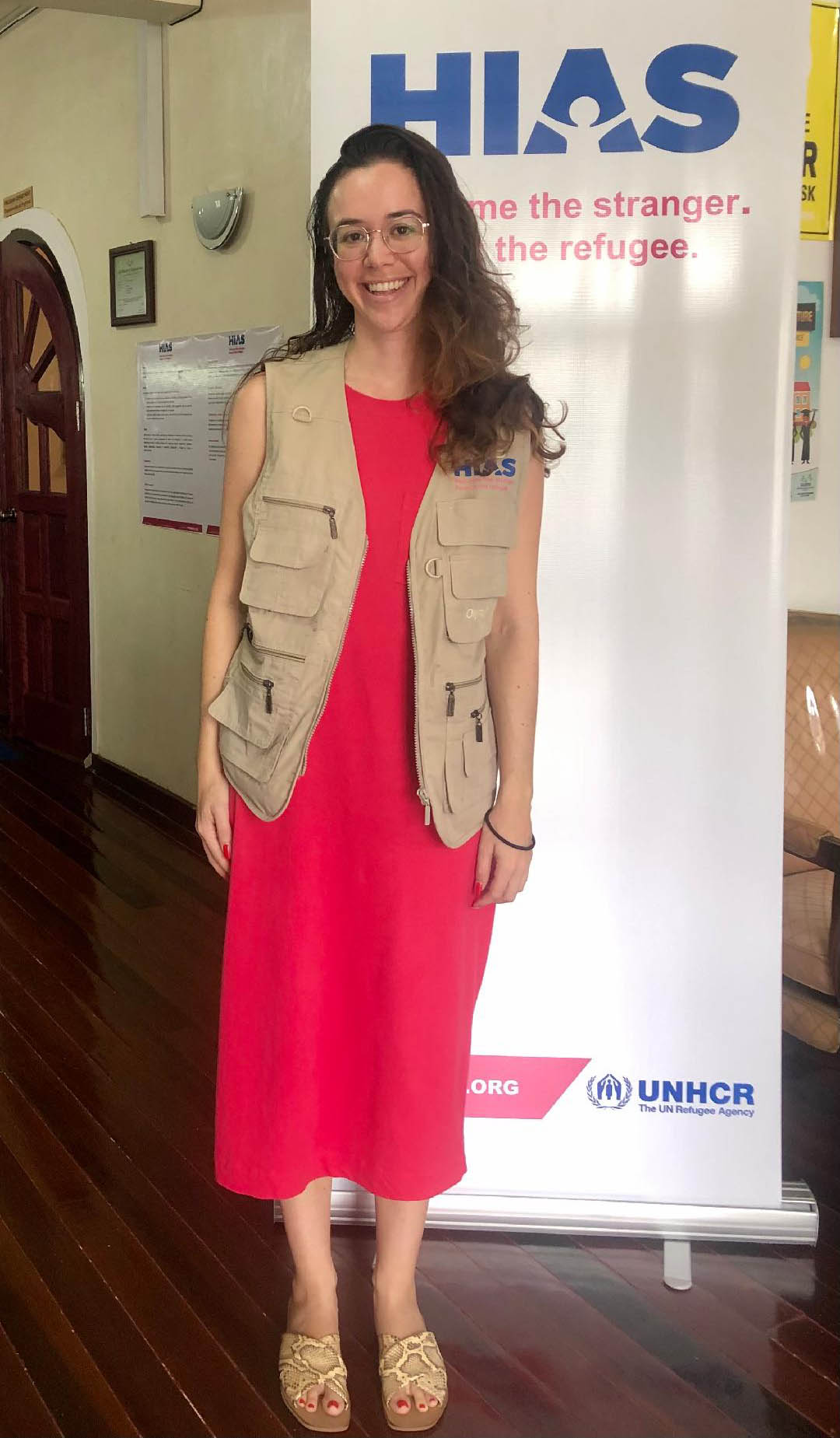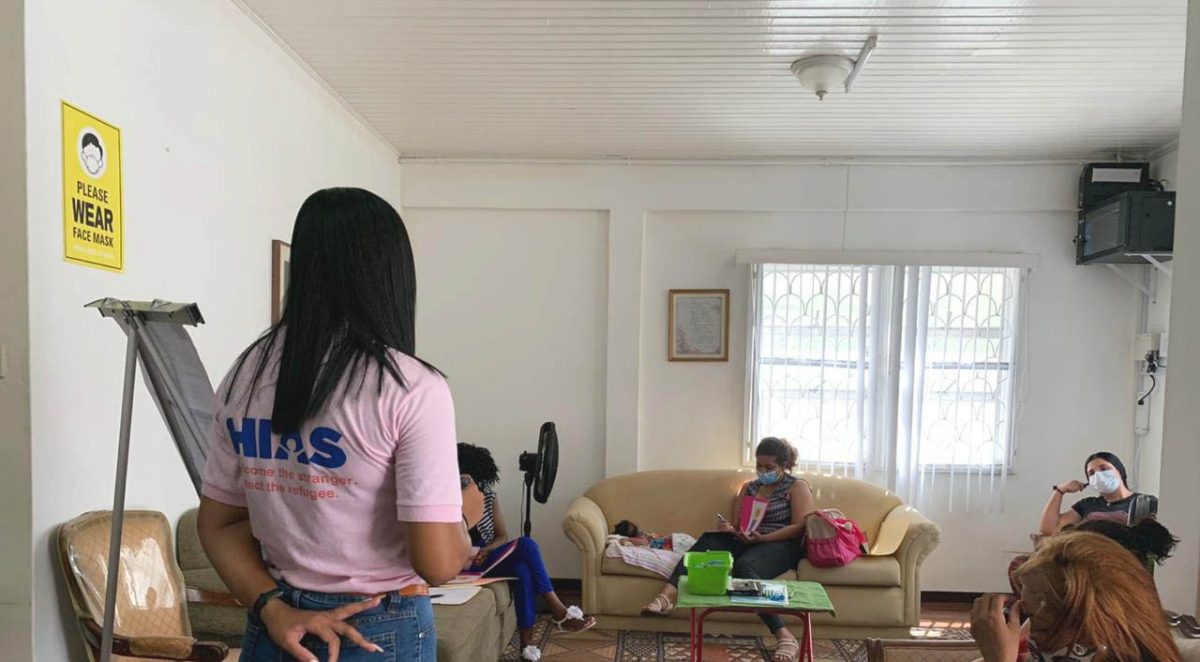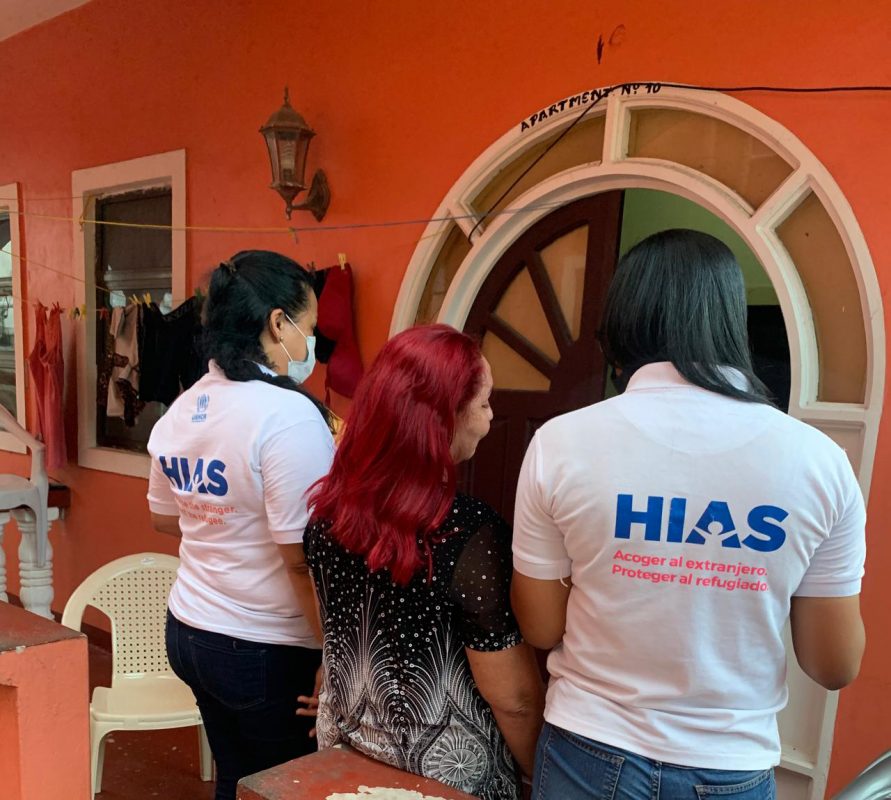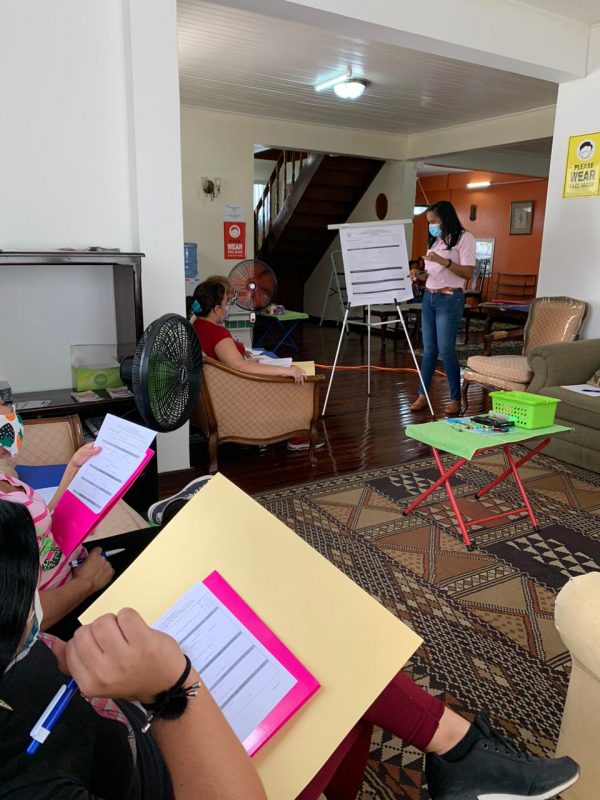With the influx of Venezuelans and other migrants into Guyana an international organisation has moved to specifically assist women and girls who are exposed to gender-based violence (GBV) and for whom the language barrier makes reporting it even more difficult.
This is, according to Alex Theran, the Country Director of HIAS, an organisation which was set up in the United States since the nineteenth century. Its head office is in Laluni Street, Queenstown, but HIAS is setting up an office in Bartica and one will also soon be established in Port Kaituma, as, according to Theran, the aim is to reach populations that are further away and where there is no response from other organisations.
“In this sense, we are very concerned about the displaced women and girls who are in these regions and who are not receiving support. Many of them are survivors of gender-based violence and are trapped in commercial sexual exploitation networks,” Theran told Stabroek Weekend recently.
She stated that the organisation’s commitment is to support those women in accessing their human rights and allowing them to have other life alternatives free of violence.
Theran noted that with the advent of the COVID-19 pandemic, trends seen worldwide reveal that many women who seek help are in some kind of unsafe situation or face violence in the home. As a result, she said, HIAS has opened its doors to survivors of sexual assault, rape and other gender-based violence and will help them to get the support they need.
All over the region gender-based violence is exacerbated by COVID-19, and she referred to World Health Organisation (WHO) statistics, which indicate one in three women are at risk of gender-based violence, and it is a global health crisis as women are now trapped at home and have their movements restricted.
Such trends are also seen in Guyana and according to Theran, Venezuelan women are facing different kinds of challenges because of the language barrier and because, particularly, a lack of documentation might make them fearful to go to the police. And even if that is what they want to do, they might not be able to communicate on their own without the support of a translator. They also might not be aware of legal rights in Guyana and so HIAS tries to act as the conduit between Guyanese laws, access to services, such as health, legal, and justice, and to determine what the survivors want and how they could be assisted in achieving that.
Also, victims do not always want to file a report and that is the reason HIAS is survivor centred. The country director noted that they might be in a situation where they require food and shelter and that is also a way in which HIAS lends support.
According to Theran, anyone who reaches out to the organisation through its WhatsApp number or via Facebook is assisted but because of the pandemic clients are not seen in office but rather appointments are made with them and they are advised about their rights. HIAS tries to meet their needs by either connecting them with services or providing information.
She said they have provided support to thousands of individuals and hundreds of families since starting work here early last year, but she clarified that not all of them are linked to gender-based violence.
Venezuelans
It was precisely because of the influx of Venezuelans in Guyana that HIAS opened its doors here, but Theran said they give support to migrants of other nationalities and the Guyanese population.
According to Theran, the organisation supports refugees in four different critical ways to help them to fully access their rights and live their lives with dignity. In Guyana it is working to help end gender-based violence by reducing risks, helping women, girls and the LGBTQ+ community find healthcare, safety and also support the host community to help change beliefs that perpetuate violence so that everyone can live safely. Mental health and psychosocial support are also covered, and it is hoped that the services will expand to include legal services specifically for vulnerable Venezuelans. Apart from Guyana, the organisation is only located in one other Caribbean country, Aruba.
Theran explained that the work in gender-based violence is driven by the survivors and the organisation is attempting to prioritise leadership and experiences and develop more tailored and effective programmes for anyone who approaches it for help.
While support is given to everyone, Theran said, focus is on the most vulnerable, often it is women and children who are either survivors of gender-based violence or vulnerable to gender-based violence. This is done by creating safe and more hospitable environments to help them to avoid certain vulnerabilities that they encounter.
In a recent report, Ayo Dalgety-Dean, whose organisation Blossom Inc has, with support from UNICEF, extended its service for the migrant population in Guyana through centres in regions One, Two and Seven, indicated “the levels of sexual and gender-based violence also saw an alarming increase which saw our migrant support staff on the ground in the field every day”.
Dedicated attention
According to Theran, preventing and responding to violence against women and girls requires dedicated attention and resources. As a result, HIAS has invested in gender-transformative programmatic models, with specialised and comprehensive intervention to address gender-based violence effectively and catalyze change in all sectors of intervention.
She explained that the specialised programming means they have trained partners and staff capable of working with survivors.
“Mainstreaming GBV risk reduction means that all HIAS staff, from lawyers to economic inclusion specialists to protection monitors, are trained to understand gender and how gender roles increase risk for women and girls refugees forcibly displaced and migrants,” she said.
Further, she posited that displaced and refugee women are exposed to multiple forms of gender violence, due to their mobility condition. And the first violence they experience is having to leave their country for reasons of force, because the crisis situation made them already live a very hard life, where the majority were already in situations of gender-based violence.
And when leaving the country during the transit, they experience extreme situations; many are raped or sexually harassed. Upon arriving in the country, they are exposed to stigmatization and discrimination, which is a very serious form of violence.
The HIAS country director also said that the majority of women have suffered various forms of gender violence, psychological, physical and sexual violence and this has huge impacts on their mental health. However, many do not recognize that what they are experiencing is violence, and that is where HIAS works not only to support them but also for them to see that what they are experiencing should not be accepted, because it is violence.
She said that HIAS supports women, girls, migrants, refugees and those who are forcibly displaced, to develop their full potential and access their right to have a life free of violence and oppression. It focuses its efforts on mitigation, response and prevention to the multiple violence to which they are exposed in the contexts of humanitarian crisis, both in origin, transit, destination and return.
Expanding on what HIAS does, Theran said it works with families and communities to reduce the risk of violence faced by women and adolescent girls and provide direct support to those who have experienced gender-based violence. They support families, providing them with access to basic needs and resources to reduce risks such as, for example, families marrying or forcibly uniting girls with men twice their age and putting them at risk of trafficking.
They also help to guarantee access to comprehensive health information and to health and direct psychosocial and legal support, and to asylum application processes as needed.
Guaranteeing the specific needs of the lifecycle of girls and adolescents is also an area of focus for HIAS as it supports displaced and refugee adolescent girls through the provision of activities in safe spaces, psychosocial and legal services and comprehensive health information in camps, urban and border settings.
HIAS also works with men to transform social norms that contribute to gender violence, with an emphasis on sexual violence, intimate partner violence or marriage, and forced and early unions of girls and adolescents.
HIAs was founded in 1881 and according to Theran it has a long and rich history. It is supported by the US State Department and United Nations High Commissioner for Refugees. It started in the US helping Jewish migrants and refugees and over time branched out to help refugees and forcibly displaced people from all over the world. Apart from the US, the organisation operates in 15 other countries including Guyana and the four big areas in which it operates are legal protection, gender-based violence, economic inclusion and livelihood and mental health and psychosocial.
In Guyana, HIAS can be contacted via WhatsApp on 608-2921 on Facebook at HIAS Guyana.








